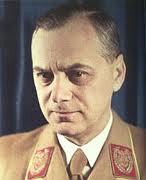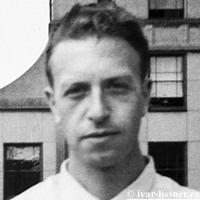Ivar Lissner
Rivaud, Albert (L)
Albert Rivaud (1876-1955) was a French professor of philosophy and a classical scholar. Ivar Lissner commenting[725.158] on the unfinished nature of the trilogy of Plato’s Dialogues which included Timaeus and the incomplete Critias, quotes Rivaud as saying that what we have contains “not only ancient traditions but also the results of the latest contemporary research carried out during Plato’s lifetime.”
trilogy of Plato’s Dialogues which included Timaeus and the incomplete Critias, quotes Rivaud as saying that what we have contains “not only ancient traditions but also the results of the latest contemporary research carried out during Plato’s lifetime.”
Rivaud published a translation of the complete works of Plato in the early 1920’s. Volume 10 was Platon. Oeuvres complètes, Tome X.: Timèe, Critias. In it, according to James Bramwell[0195.91], he demonstrated that the term ‘orichalcum’ was known before Plato and not just an invention of his.
Later in his life Rivaud blotted his copybook with expressions of anti-Semitism and admiration for Hitler.
Rosenberg, Alfred
Alfred Rosenberg (1893-1946) was born Tallinn, Estonia, then part of the  Russian Empire.. Like Ivar Lissner he spent some of his early years in Russia before emigrating to Germany. He is considered to have been one of the leading theorists behind many of the extreme policies of the Nazi Party, in particular its racial ideology. He was later tried for war crimes and hanged in 1946.
Russian Empire.. Like Ivar Lissner he spent some of his early years in Russia before emigrating to Germany. He is considered to have been one of the leading theorists behind many of the extreme policies of the Nazi Party, in particular its racial ideology. He was later tried for war crimes and hanged in 1946.
Rosenberg adopted many of Rudolf Steiners ideas regarding Atlantis, adding a few colourful touches of his own such as referring to a master race of ‘Aryan-Nordic-Atlanteans’ in Northern Europe. He added that Atlantis had existed where there had once been exposed land between Iceland and Greenland when sea levels were 100 metres lower.
He expressed much of his warped ideas in a 1930 book The Myth of the Twentieth Century, which has been described by Joscelyn Godwin as “perhaps the dullest book that ever sold a million copies.”In fact the sales of his book were only exceeded by that of Hitler’s Mein Kampf.
A secondhand copy of the English translation was recently on offer at Amazon.uk for over £400! However, you can download the text for nothing from the Internet(a) .
Lissner, Ivar Arthur Nicolai (L)
Ivar Arthur Nicolai Lissner (1909-1967) was born in what is now the Latvian city of Livani. After an unhappy sojourn in Russia the family returned to Riga, the Latvian capital and subsequently moved to Berlin. He joined the Nazi Party in 1933 and remained with it in spite of the fact that the Gestapo spent three years trying to prove his father’s Jewish ancestry until they dropped charges in 1940. Lissner had moved to Japan acting as a press attaché, in reality a double-agent for both the Nazis and the Soviets. Eventually, he was accused of being a Soviet spy and imprisoned and tortured but eventually acquitted by a Japanese court and released before the end of the war.
 After the war be developed his career as a journalist in Germany and France. He had authored a number of books before the war and continued writing afterwards. Two of his later books have been translated into English which deal with ancient civilisations, The Living Past [726] and The Silent Past[725]. He supported the idea that Tartessos in Spain had been Atlantis, and extensively cites the work of Adolf Schulten in support of this contention.
After the war be developed his career as a journalist in Germany and France. He had authored a number of books before the war and continued writing afterwards. Two of his later books have been translated into English which deal with ancient civilisations, The Living Past [726] and The Silent Past[725]. He supported the idea that Tartessos in Spain had been Atlantis, and extensively cites the work of Adolf Schulten in support of this contention.
